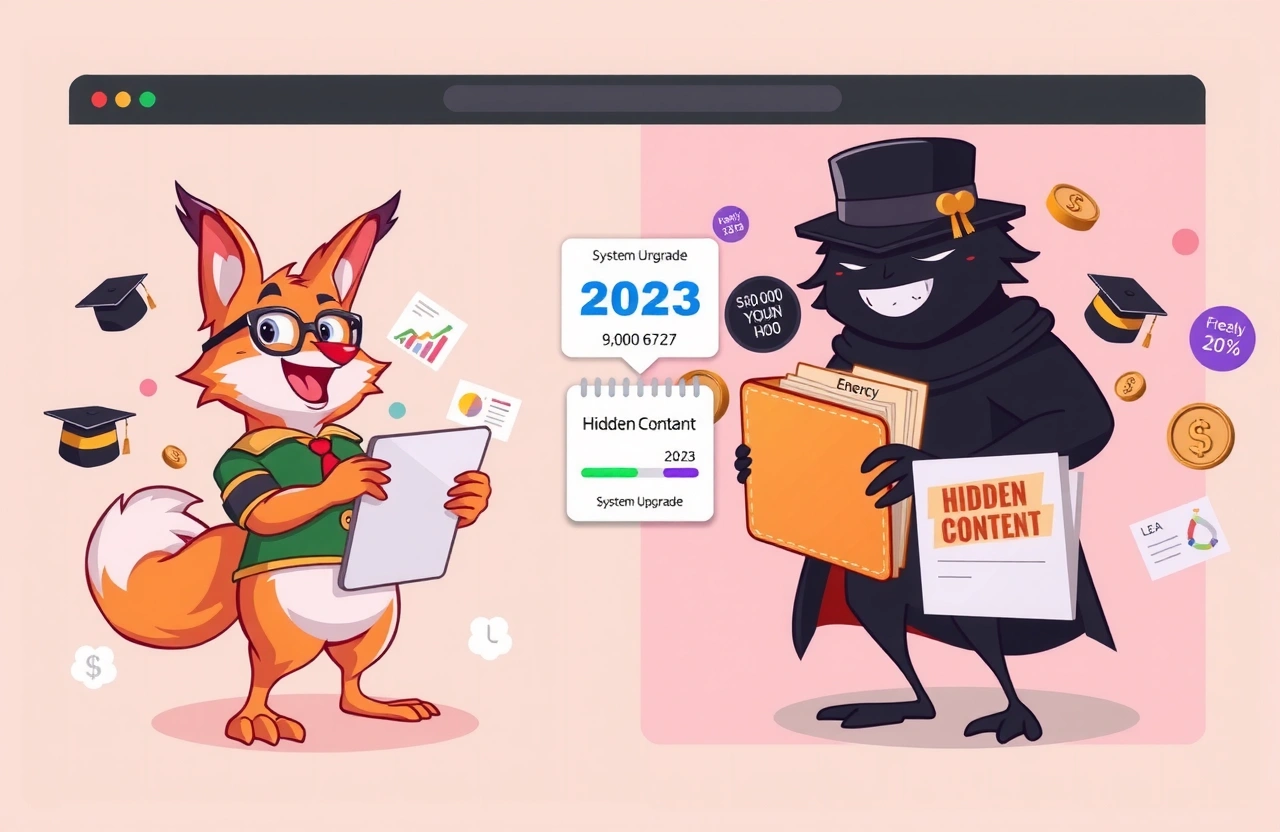The Jekyll and Hyde of Mobile Browsers
During 2025’s Gaokao results period, Quark Browser’s AI college application tool generated over 3 million admission reports, earning praise from Alibaba Group Vice President Wu Jia (吴嘉) who called it “a collective trust in seven years of technical accumulation.” Yet behind this educational facade, investigators discovered users could access hardcore pornography through specific keywords, with the browser automatically generating compressed files of explicit content. This disturbing duality raises urgent questions: Can a tool marketed to students simultaneously function as a porn portal? With over 14,000 consumer complaints about unauthorized charges on record, Quark’s identity crisis threatens both user trust and online safety.
Gaokao Guidance Meets Graphic Content
Quark’s educational promise appears substantial at first glance. Its AI recommendation system analyzes exam scores, university admission trends, and employment data to generate personalized college application strategies. During peak usage, the platform processed over 10,000 queries per hour according to internal metrics. Alibaba executives publicly celebrated this achievement, with Wu Jia (吴嘉) emphasizing their “responsibility to students’ futures.”
The Keyword Backdoor
Beneath this scholarly surface, investigators found pornographic content accessible through deliberate search patterns. Social media influencers on platforms like Douyin (TikTok) promote Quark with phrases like “men’s essential tool” while hinting at hidden functionality. Testing revealed that entering terms like “立体片库” (3D film library) immediately surfaces third-party sites featuring explicit movie thumbnails. The browser’s integrated download function then enables saving of this content, with VIP membership promotions appearing at critical access points.
The Compression Pipeline
More concerning is Quark’s resource recognition system. When users paste specific links shared on social media, the browser automatically detects and displays compressed files labeled “hidden benefits” or “edgy collections.” These files require SVIP membership for extraction, after which they reveal sexually suggestive videos. The entire process—from link identification to paid extraction—occurs within Quark’s ecosystem, creating a self-contained pipeline for explicit material.
Repeat Offender Patterns Emerge
This isn’t Quark’s first content moderation failure. In October 2023, the Cyberspace Administration of China fined the platform 500,000 yuan for “presenting large amounts of pornographic information” and “recommending vulgar keywords.” Official findings cited violations of the Cybersecurity Law and Network Information Content Ecological Governance provisions, noting “serious loopholes” in content security management.
Empty Promises?
Following the penalty, Quark pledged comprehensive reforms: establishing specialized teams, upgrading content identification systems, and implementing manual-technical review processes. Yet current testing shows identical access methods still function nearly two years later. The platform continues serving as an intermediary for explicit content while promoting paid services on these pages, suggesting fundamental flaws in their enforcement approach.
Monetization Through Manipulation
Beyond content issues, Quark faces mounting criticism over financial practices. The Hei Mao Complaint platform hosts over 15,000 user grievances, with unauthorized charges representing the dominant concern. Users report automatic renewals initiated without clear consent, often linked to features like file extraction or high-speed downloads.
The VIP Trap
Analysis reveals problematic patterns in Quark’s payment flows:
– Ambiguous opt-in mechanisms for subscription trials
– Insufficient warnings about automatic renewal terms
– Difficult cancellation processes requiring multiple steps
– Recurring charges after service cancellation
These practices particularly impact students using Gaokao tools, creating financial vulnerabilities within educational contexts.
Systemic Failures in Digital Governance
Quark’s dual identity exposes critical weaknesses in platform accountability. Industry commentator Zhang Shule (张书乐) notes: “Platforms historically hide behind the ‘safe harbor principle’—removing content only after reports. But this passive approach fails against systemic content distribution.” The consequences are particularly severe for minors, who represent a significant portion of Gaokao tool users.
The Trust Equation
Three core contradictions undermine Quark’s credibility:
1. Educational positioning vs. adult content accessibility
2. Technical sophistication in AI tools vs. primitive content filters
3. Corporate accountability rhetoric vs. recurring violations
This misalignment creates tangible risks. Psychology studies show early exposure to explicit content can distort developing perceptions of relationships and sexuality, making Quark’s accessibility particularly concerning.
Crossroads for Responsible Technology
Quark stands at a critical juncture. Its Gaokao tools demonstrate genuine technical capability, yet content and billing practices reveal disregard for user protection. The solution requires more than superficial adjustments—it demands fundamental restructuring of content identification systems, transparent payment protocols, and age-appropriate access controls. As Zhang Shule (张书乐) warns, the impact on young users may be “lifelong” without intervention. For parents and educators relying on Quark’s educational promises, the time for demanding verifiable change is now. Contact Quark’s developer team through official channels to voice concerns about these dual-standard practices, and consider alternative browsers until meaningful reforms are demonstrated.




